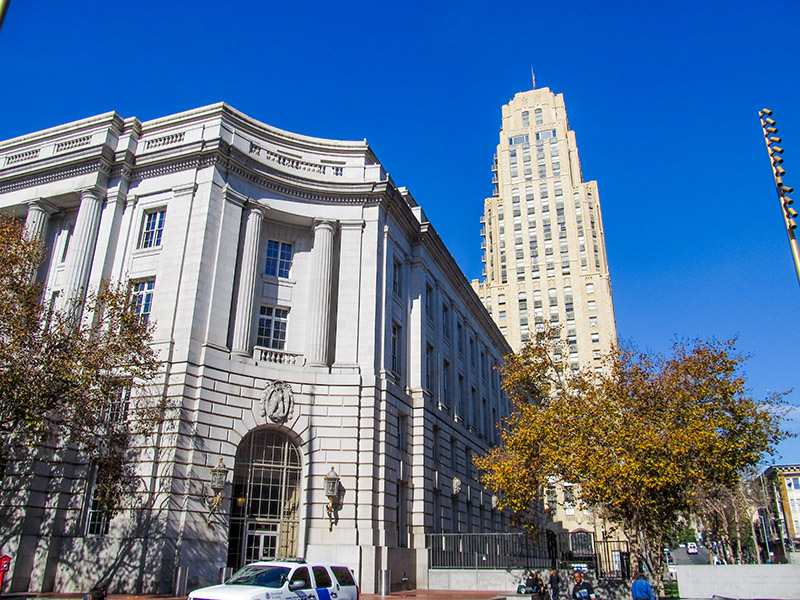Federal court orders State Department to recognize citizenship of gay couple’s daughter
Court finds that the children of married same-sex couples, at least one of whom is a U.S. citizen, are entitled to U.S. citizenship

A federal court in Maryland has ordered the U.S. Department of State to recognize the U.S. citizenship of, and issue a passport to, Kessem Kiviti, the one-year-old daughter of a Roee and Adiel Kiviti, a same-sex married couple.
The Immigration and Nationality Act of 1965 states that children of married U.S. citizens born abroad are U.S. citizens from birth, so long as one of their parents has lived in the United States at some point. Typically, had Kessem been abroad to a legally married heterosexual couple, she would be considered a citizen herself.
But under the Trump administration, the State Department has refused to recognize the Kivitis’ marriage, which has significant ramifications for Kessem. Because she is only biologically related to Adiel — an Israeli-born naturalized U.S. citizen since January 2019 who has resided in the United States since 2015 — and not to Roee, who has been a citizen since 1993, the State Department treats Kessem as “born out of wedlock.”
Read more: Maryland gay couple sues State Department for refusing to recognize daughter’s U.S. citizenship
By treating Kessem as “born out of wedlock,” to automatically obtain U.S. citizenship, she would have to have a biological relationship to a U.S. citizen parent who has resided in the U.S. for five years. Because she does not meet this criteria, the State Department has refused to issue her a U.S. passport. The Kivitis subsequently sued, demanding that their daughter’s citizenship be reocgnized.
In his opinion siding with the Kivitis, U.S. District Judge Theodore Chuang, of the District of Maryland, ordered the State Department to issue Kessem a passport and recognize her citizenship.
“Where the State Department effectively has acknowledged that it applies [the provision Immigration and Nationality Act defining citizenship] in certain cases without ever requiring proof of a biological relationship, its interpretation appears to advantage certain opposite-sex couples as compared to same-sex couples in providing a benefit related to marriage,” Chuang wrote.
“It is not immediately clear why such disparate treatment would be constitutionally justified at least in the present case, where it is undisputed that there is a biological relationship between one U.S. citizen parent and the child, and where, under the State Department’s position that gestational surrogates and sperm or egg donors do not count as parents for purposes of citizenship analysis, 100 percent of the biological parents are U.S. citizens,” Chuang added.
Related: Georgia gay couple sues State Department over refusal to recognize daughter’s U.S. citizenship
“We are tremendously relieved that the court recognized what we always knew: that our daughter was a U.S. citizen by birth,” Roee and Adiel Kiviti said in a joint statement. “We are proud we taught our little girl to stand up for what’s right even before she could crawl. No child should be denied her rights because her parents are LGBT, and no family should have to endure the indignity we did.”
The rationale used by Chuang in reaching his decision could also be applied to a similar lawsuit, filed in the U.S. District Court for the Northern District of Georgia, brought by another married gay couple, Derek Mize and Jonathan Gregg, who are demanding that their daughter, Simone Mize-Gregg, be recognized as a U.S. citizen by the State Department.
LGBTQ advocates note that the State Department routinely acknowledges the parent-child relationship between married opposite-sex parents and their children, even if only one parent has a biological connection to the child.
However, it refuses to grant the same presumption for same-sex couples, often subjecting the parents to invasive questioning about how they brought the child into their family and their biological relationship, and, in some cases, requiring the biological parent to meet additional criteria before recognizing the child’s citizenship. But according to the court’s reasoning, that disparate treatment is unjustified.
“After this week’s Supreme Court victory affirming that LGBT people cannot be carved out from laws prohibiting discrimination in employment, today’s victory confirms once again that married same-sex couples cannot be carved-out from laws tied to marriage, as is the Immigration and Nationality Act,” Omar Gonzalez-Pagan, a senior staff attorney at Lambda Legal, said in a statement. “The Immigration and Nationality Act does not distinguish between the marital children of same-sex and different-sex couples. As the court noted, to do so would violate the clear terms of the law and raise grave constitutional concerns.
“The law provides for the recognition of citizenship to the children born abroad of married couples who are U.S. citizens, Gonzalez-Pagan added. “This provision applies equally to all couples regardless of whether the parents have a biological relationship with their children. It was callous and discriminatory for the State Department to refuse to recognize baby Kessem as the U.S. citizen she is. Today’s victory shows how unlawful the Department of State’s actions really were.”
“This is a huge victory for the Kiviti family,” Aaron Morris, the executive director of Immigration Equality, which is also representing the Kivitis. “Yet another federal court agrees with us that a biological connection is not required for married U.S. citizen parents to pass on citizenship to their children. This just makes sense. It’s love that makes a family, not biology. We will continue to fight this battle until the State Department ends its discriminatory policy.”
Read more:
Gay Trump supporter removed from plane for refusing to wear mask
350+ LGBTQ organizations call for transformational change in policing
Chicago high school student charged with fatally shooting transgender woman
Support Metro Weekly’s Journalism
These are challenging times for news organizations. And yet it’s crucial we stay active and provide vital resources and information to both our local readers and the world. So won’t you please take a moment and consider supporting Metro Weekly with a membership? For as little as $5 a month, you can help ensure Metro Weekly magazine and MetroWeekly.com remain free, viable resources as we provide the best, most diverse, culturally-resonant LGBTQ coverage in both the D.C. region and around the world. Memberships come with exclusive perks and discounts, your own personal digital delivery of each week’s magazine (and an archive), access to our Member's Lounge when it launches this fall, and exclusive members-only items like Metro Weekly Membership Mugs and Tote Bags! Check out all our membership levels here and please join us today!




























You must be logged in to post a comment.